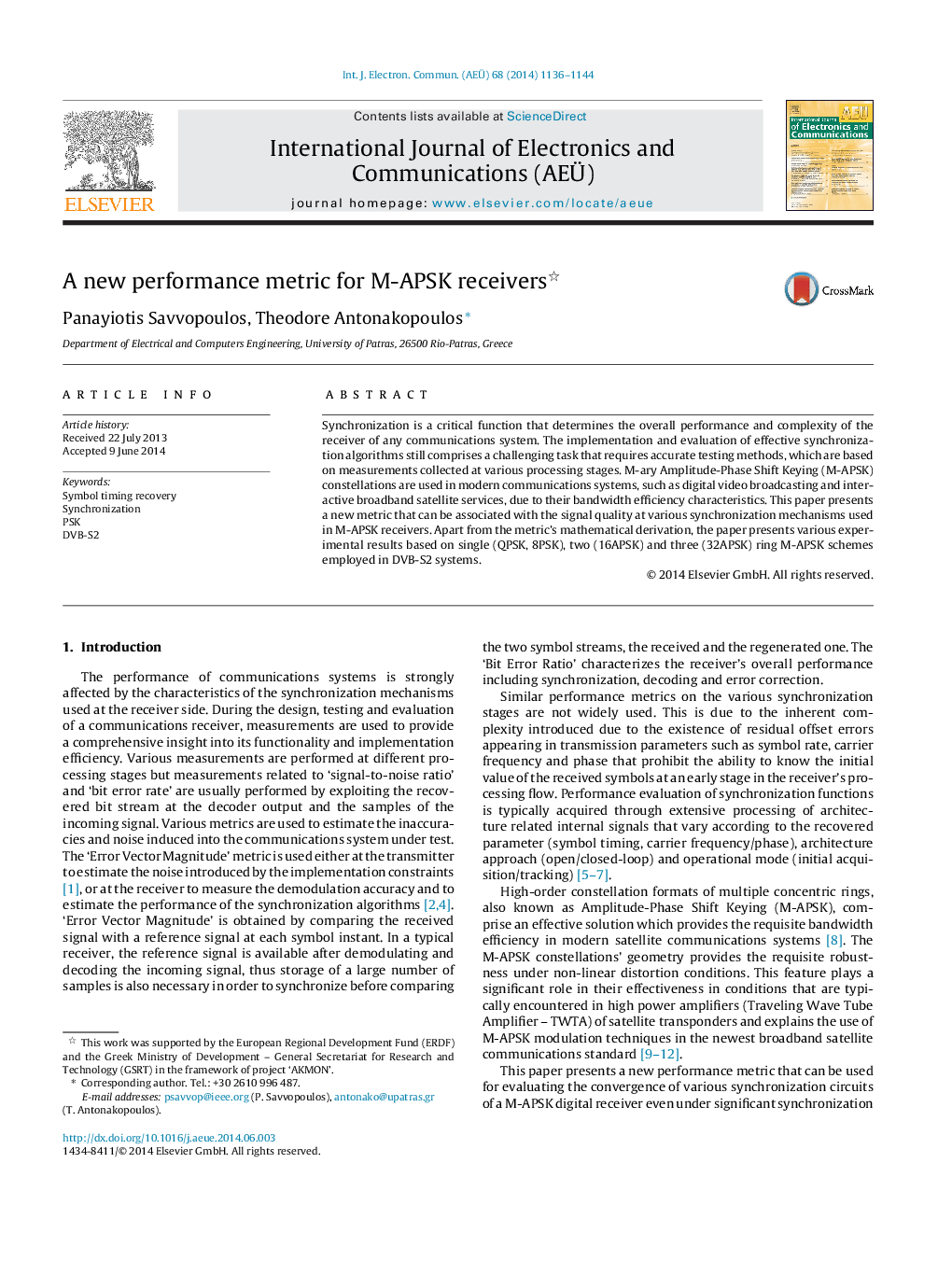| Article ID | Journal | Published Year | Pages | File Type |
|---|---|---|---|---|
| 447578 | AEU - International Journal of Electronics and Communications | 2014 | 9 Pages |
Synchronization is a critical function that determines the overall performance and complexity of the receiver of any communications system. The implementation and evaluation of effective synchronization algorithms still comprises a challenging task that requires accurate testing methods, which are based on measurements collected at various processing stages. M-ary Amplitude-Phase Shift Keying (M-APSK) constellations are used in modern communications systems, such as digital video broadcasting and interactive broadband satellite services, due to their bandwidth efficiency characteristics. This paper presents a new metric that can be associated with the signal quality at various synchronization mechanisms used in M-APSK receivers. Apart from the metric's mathematical derivation, the paper presents various experimental results based on single (QPSK, 8PSK), two (16APSK) and three (32APSK) ring M-APSK schemes employed in DVB-S2 systems.
